In an era where sustainability is not just a choice but a necessity, the kitchen, the heart of every home, is undergoing a green transformation. The debate between electric vs. induction cooktops is at the forefront of this eco-friendly revolution. Let’s dive into the world of sustainable cooking and uncover which option, electric or induction, is the greener choice for your kitchen.
Introduction to Eco-Friendly Cooktops
The environmental impact of traditional cooking methods has sparked a growing concern. As we strive for a sustainable lifestyle, the focus has shifted to greener alternatives in kitchen appliances. Electric vs. induction cooktops emerge as frontrunners in this quest for eco-friendly cooking solutions.
Electric vs. Induction Cooktops
Electric Cooktops
Electric cooktops function by converting electrical energy into heat. This heat is then transferred to the cookware and its contents. While they are a step up from traditional gas stoves in terms of energy efficiency, they still have their limitations.
| Advantages | Disadvantages | |
| 1. | Electric cooktops are straightforward and familiar to most users. | Electric cooktops take time to heat up and cool down. |
| 2. | They are widely available and fit into standard kitchen designs. | They are less efficient as heat is lost during the transfer process. |
Also Read: Best Pots and Pans for Gas Stoves in 2023

Induction Cooktops
Induction cooktops use an electromagnetic field to directly heat the cookware. This innovative method results in rapid heating and precise temperature control, making it a highly efficient cooking technology.
| Advantages | Disadvantages | |
| 1. | Induction cooktops heat up and cool down rapidly. | Not all pots and pans work with induction cooktops. |
| 2. | They remain cool to the touch, reducing burn risks. | They can be more expensive than traditional electric cooktops. |
| 3. | Direct heating means less energy is wasted. |
Top Sustainable and Eco-Friendly Induction Cooktop Brands
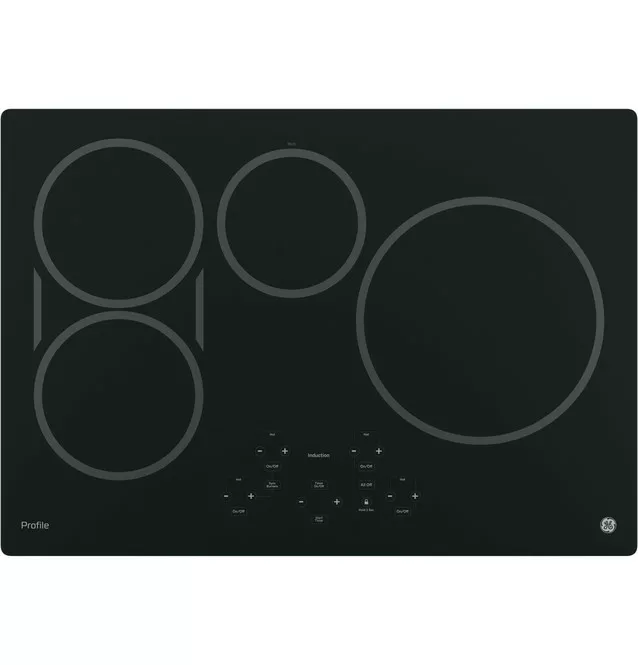
Price Range: 936$
Features: Four induction elements, a digital control, rapid and precise heating, and a cool-to-the-touch surface that’s easy to clean.
Number of Burners: 4 induction elements
Energy Efficiency: KW Rating at 240 V is 7.4
Warranty: Parts warranty – 1 year entire appliance
Pros:
Burners can be synced
Comes with a built-in wifi
Cons:
Cannot cook 2 large pots at once
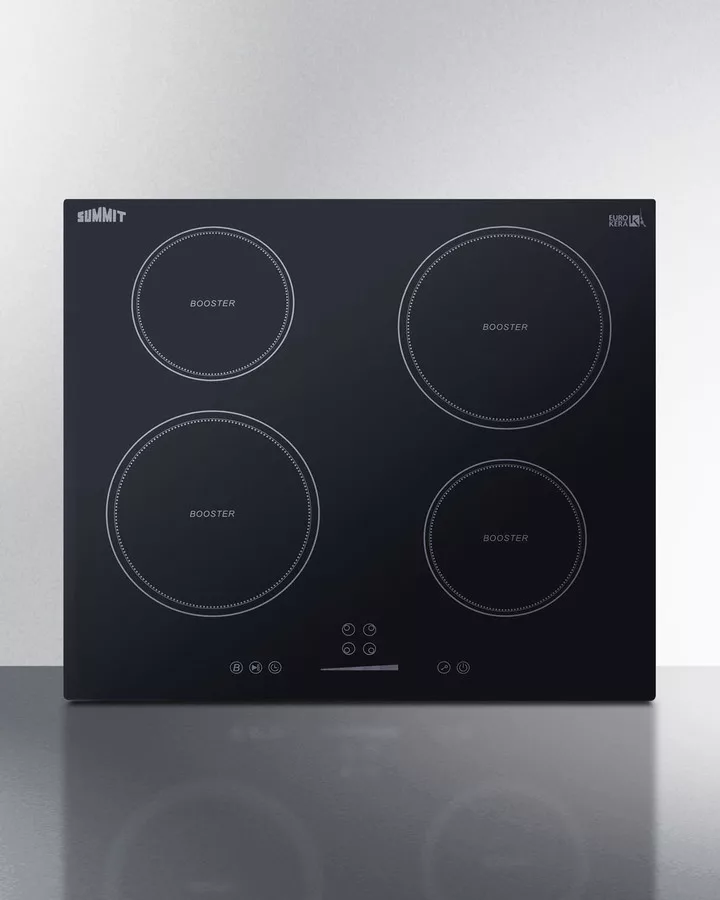
Price Range: 936$
Features: 7200W of cooking power to meet your heating needs with the modern convenience, safety, and efficiency of induction technology
Number of Burners: 4 induction elements
Energy Efficiency: Approximately 85% of the heat created goes directly towards heating cookware contents.
Warranty: Parts and labour warranty 1 year
Pros:
The dimension is just 23 inches, so fits perfectly
Energy efficient
Cons:
Only 2 different burner sizes
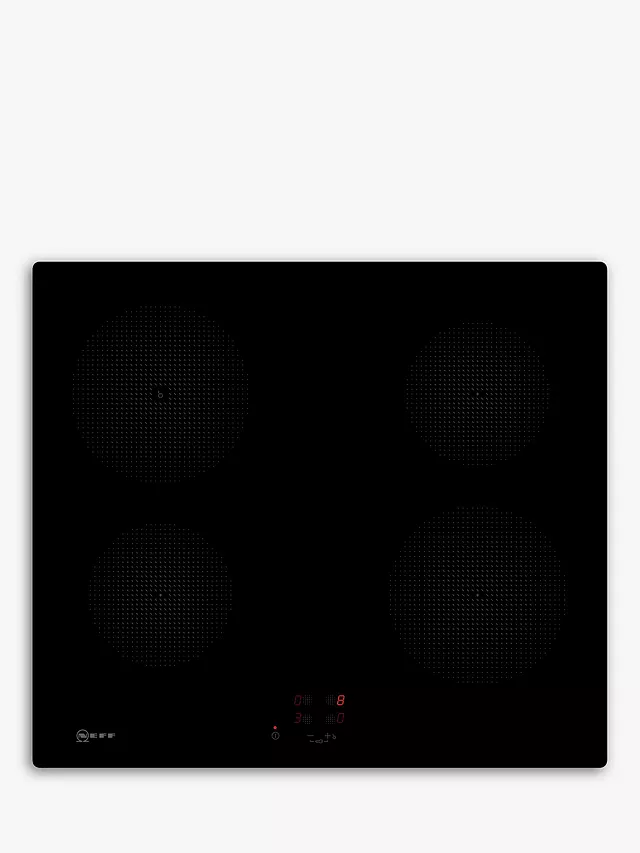
Price Range: 379$
Features: Plug&Play: No electrician needed; Power Boost – An extra surge of heat when you need fast results; Induction – the heat is generated directly in the cookware for precise cooking that stops when power is off.
Number of Burners: 4
Energy Efficiency: energy consumption of 1st heating element calculated per 1kg – 185.0 Wh/kg
Warranty: NA; Gives 2 years Guarantee
Pros:
Lockable control mode
Boost mode
Cons:
Only 2 different burner sizes
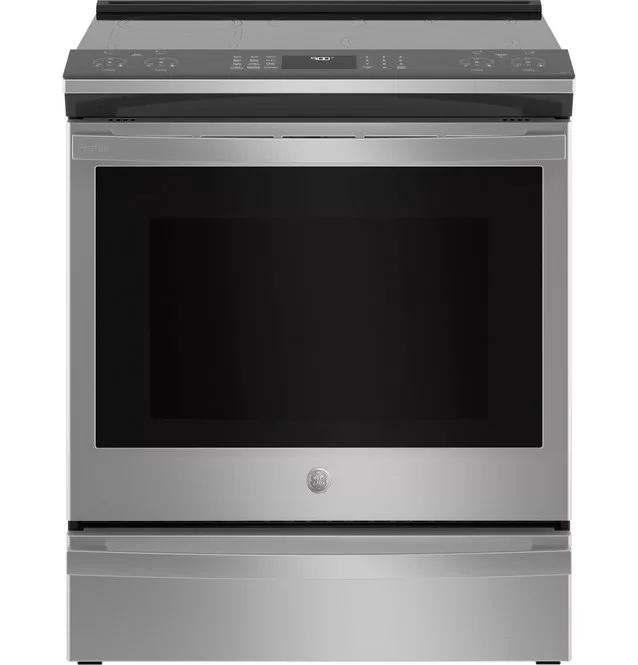
Price Range: 2799$
Number of Burners: 5
Energy Efficiency: KW Rating at 240 V is 10.5
Warranty: Parts warranty – 1 year limited entire appliance
Features: Built-in Wi-Fi, powered by SmartHQ App, precise control, 5 elements with bridging capacity and a warming zone, True Convection with Precise Air, and Self-Clean with Steam Clean Option.
Pros:
Has a built-in wifi
Bridging capability to extend cooking surface
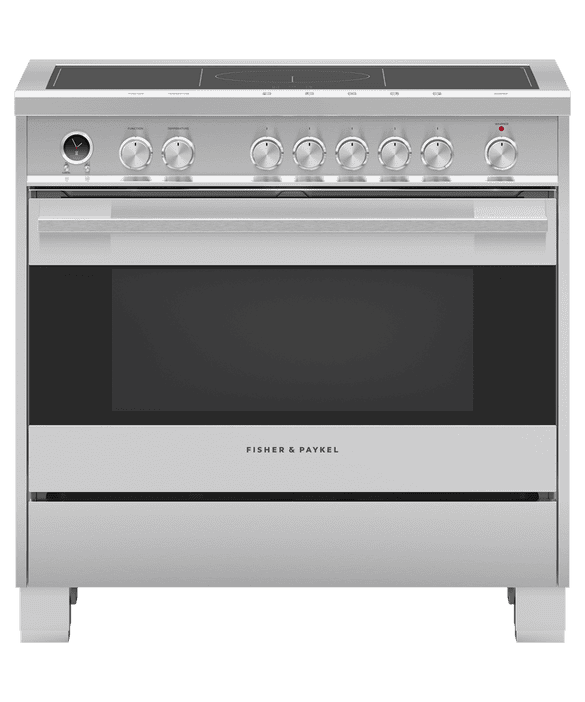
Price Range: 7999$
Features: Five induction cooking zones which can be joined to form SmartZones, Convection oven with 4.9 cu. Ft total capacity, nine oven functions, High-temperature self-cleaning function that breaks down food residue for an easy clean, etc.
Number of Burners: 4 induction elements
Warranty: 1-year manufacturer warranty
Pros:
Five cooking zone options
Even heat distribution and durable
Cons:
Very expensive
Comparing the Environmental Impact of Electric vs. Induction Cooktops
Electric Cooktops: A Step Forward, But Not the Finish Line
Electric cooktops, while more energy-efficient than their gas counterparts, still leave a significant carbon footprint. The process of generating electricity itself often involves burning fossil fuels, which contributes to greenhouse gas emissions. Although electric cooktops are a step in the right direction, they are not the pinnacle of eco-friendly cooking technology.
Induction Cooktops: The Eco-Warrior of the Kitchen
Induction cooktops, on the other hand, are a game-changer in the realm of sustainable cooking. They use electromagnetic energy to directly heat pots and pans, which drastically reduces energy loss. This direct transfer of energy makes induction cooktops incredibly energy-efficient, significantly reducing their carbon footprint. Studies have shown that induction cooktops can be up to 70% more energy-efficient compared to traditional electric cooktops. This efficiency translates into a lower environmental impact, making induction cooktops a superior choice for those looking to minimize their carbon footprint.
Also Read: Caraway Cookware Review: Revolutionizing Your Kitchen with Safe and Sustainable Choices

Factors to Consider When Choosing Between Electric vs. Induction Cooktops
Energy Efficiency: The Core of the Decision
When choosing between electric and induction cooktops, energy efficiency is a paramount consideration. Induction cooktops stand out for their ability to cook food faster and with less energy. This efficiency not only helps the environment but can also lead to savings on your energy bills in the long run.
Cooking Preferences: Tailoring to Your Culinary Style
Your cooking style and preferences play a significant role in this decision. If you enjoy the traditional cooking experience and have a variety of cookware, an electric cooktop might be more suitable. However, if you prioritize speed, precision, and energy efficiency, induction cooking is unparalleled. The instant control over heat and the ability to boil water in seconds are features that many home chefs appreciate.
Also Read: 10 Eco-Friendly Granitestone Cookware Sets for the Conscious Chef
Long-Term Costs: An Investment in Sustainability
While induction cooktops may have a higher upfront cost compared to electric cooktops, they are an investment in both your culinary experience and the environment. The energy savings over time can offset the initial expense. Additionally, as the demand for sustainable appliances grows, the cost of induction technology is gradually decreasing, making it more accessible.
Compatibility and Convenience
Consider the compatibility of your current cookware with induction cooktops. Induction cooking requires cookware with a magnetic base, which might mean investing in new pots and pans. Electric cooktops, on the other hand, are compatible with all types of cookware, making them a more convenient choice for some.

FAQs
What’s more energy-efficient between electric vs. induction cooktops?
Induction cooktops are generally more energy-efficient as they directly heat cookware, minimizing heat loss.
What are the primary benefits of induction cooktops?
Induction cooktops offer faster cooking times, energy efficiency, and enhanced safety features.
Can I use regular cookware on an induction cooktop?
You need induction-compatible cookware, which must be ferromagnetic like cast iron or some stainless steels.
How can induction cooktops contribute to a greener kitchen?
By using less energy and reducing heat waste, induction cooktops contribute to lower energy consumption and a reduced carbon footprint in the kitchen.
Conclusion
In conclusion, the choice between electric vs. induction cooktops is not just about cooking; it’s about making a conscious decision towards a more sustainable future. While electric cooktops offer a more familiar experience and universal compatibility, induction cooktops lead the way in energy efficiency and environmental friendliness. Your decision will ultimately depend on your personal cooking style, environmental priorities, and long-term cost considerations.
Make your kitchen greener! Visit our blog for more guides on how to maintain a sustainable kitchen.








